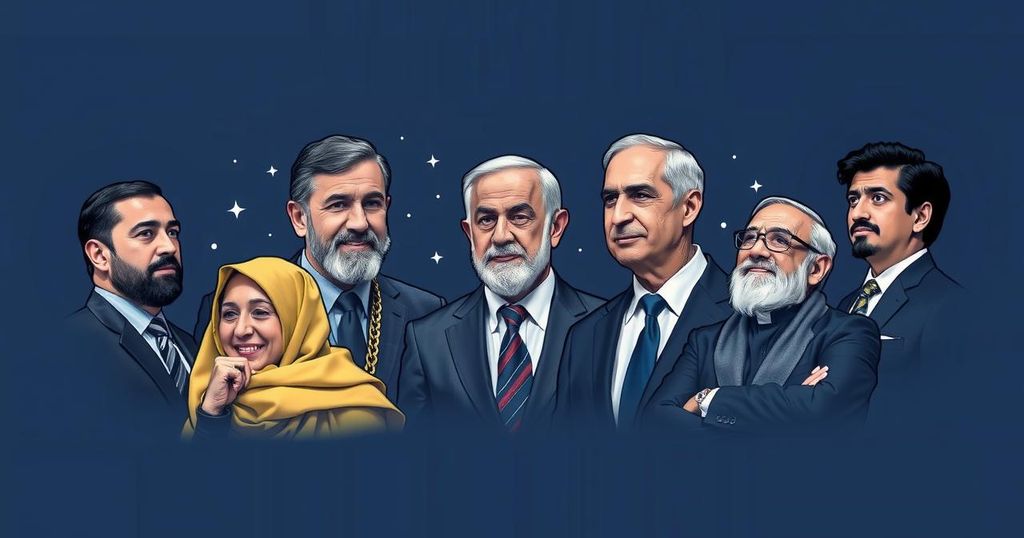Saudi Arabia, the UAE, and Egypt have exhibited a notable shift in their diplomatic language concerning Israel’s military actions against Iran, opting for measured responses that emphasize regional stability without overt condemnation. This indicates a potential realignment among these nations as they recognize shared interests in countering Iran’s influence and securing their own borders.
In the ever-complex landscape of Middle Eastern geopolitics, the recent military strike by Israel on an Iranian base has elicited distinct yet telling responses from Saudi Arabia, the United Arab Emirates (UAE), and Egypt. Rather than overtly condemning Israel’s actions, these key regional players have opted for carefully crafted statements that suggest an unspoken shift in alliances. Each nation has emphasized the importance of sovereignty and regional stability, denoting a burgeoning recognition of Israel’s strategic positioning amid ongoing threats posed by Iran. The UAE’s response is particularly illustrative of this nuanced diplomacy. By condemning the military targeting while simultaneously championing the significance of dialogue and adherence to international law, the UAE indicates a preference for diplomatic discourse over confrontational rhetoric. This approach is consistent with the Emirati government’s prior initiatives aimed at fostering economic and security cooperation with Israel through the Abraham Accords. Similarly, Saudi Arabia’s reaction reflects a measured tone that refrains from direct accusations against Israel. While referring to the attack as a violation of sovereignty, the kingdom emphasizes the overarching necessity for security and stability in the region. This statement marks a departure from historical approaches, reflecting a strategic recalibration that subtly acknowledges Israel’s role in countering Iranian influence without alienating it. Egypt also adopts a pragmatic stance, extending its condemnation to encompass broader concerns about regional conflict. By emphasizing the need for swift ceasefires across various fronts, Egypt shifts attention away from Israel’s actions, framing the dialogue in terms of collective stability. This positioning underlines Egypt’s historical role as a mediator in regional disputes and its vested interest in maintaining calm along its borders. The overarching theme in the responses from Saudi Arabia, the UAE, and Egypt points toward a quiet, yet significant, realignment amidst shared threats. While these nations maintain their support for Palestinian rights, their current focus appears to gravitate toward curbing Iranian expansion and ensuring domestic and regional security. Such nuanced responses signify a potential shift in perception of Israel—from a rival to a possible ally against common threats, illustrating a new chapter in Arab-Israeli relations that could foster greater stability in a historically volatile region.
Historically, the relationship between Arab states and Israel has been fraught with tension, particularly regarding the Palestinian issue and Iran’s regional aspirations. However, recent developments—such as the Abraham Accords—have led to a gradual shift in how certain Arab states view Israel, especially in light of the growing concerns regarding Iran’s influence in the region. This evolving relationship is marked by a growing recognition that shared interests may take precedence over historical animosities, allowing for a greater degree of cooperation that seeks to address mutual threats to stability.
In conclusion, the restrained responses of Saudi Arabia, the UAE, and Egypt following Israel’s military actions against Iran provide a compelling indication of a potential strategic realignment in the Middle East. By refraining from outright condemnation and focusing instead on the imperatives of sovereignty and regional stability, these nations appear to be embracing a diplomatic approach that recognizes Israel’s role in countering a common adversary. This nuanced stance not only signals a shift in regional dynamics but also hints at the possibility of a more collaborative future among historically divided states in the pursuit of collective security.
Original Source: www.jpost.com






